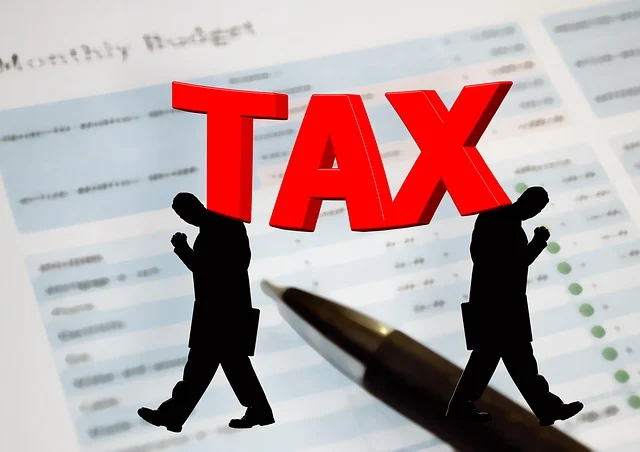Income Tax Rates and Deductions in the Netherlands

The Dutch tax system is progressive, meaning that higher income levels are taxed at higher rates. It also includes various deductions and allowances to reduce taxable income. Understanding how income tax works in the Netherlands is essential for residents, expatriates, and anyone planning to work or live in the country.
1. Income Tax Rates (2023)
The Netherlands uses a multi-bracket system for income tax, with rates applied to taxable income after deductions. There are three main brackets:
| Taxable Income (€) | Tax Rate (%) |
|---|---|
| Up to €73,031 | 36.93% (Box 1) |
| Over €73,031 | 49.50% (Box 1) |
Note: These rates apply to “Box 1” income, which includes wages, pensions, and business profits. The percentages include both national income tax and social security contributions (volksverzekeringen ).
2. Tax Boxes: How Income is Categorized
The Dutch tax system divides income into three “boxes,” each taxed differently:
a) Box 1: Employment and Business Income
- Includes salaries, bonuses, pensions, and business profits.
- Taxed at progressive rates (as shown above).
b) Box 2: Substantial Interest in a Company
- Applies to individuals holding more than 5% of shares in a company.
- Taxed at a flat rate of 26.9% on the value of the shares and dividends.
c) Box 3: Savings and Investments
- Includes savings accounts, investments, and real estate not used as a primary residence.
- Taxed based on a deemed return (not actual gains). For 2023:
- Deemed return: 4.8% of total assets.
- Tax rate: 33% of the deemed return.
3. Social Contributions (Social Security Taxes)
In addition to income tax, employees and self-employed individuals must pay social contributions, which fund healthcare, pensions, unemployment benefits, and other welfare programs.
- Employees: Employers deduct payroll taxes (loonheffing ) directly from wages, covering both income tax and social contributions.
- Self-Employed Individuals: Freelancers and entrepreneurs pay their own contributions, but certain exemptions may apply.
4. Key Deductions and Allowances
The Dutch tax system offers several deductions and allowances to reduce taxable income. These include:
a) General Tax Credit (Algemene Heffingskorting )
- A standard credit available to all taxpayers, reducing income tax liability.
- Amount decreases as income increases.
b) Labor Tax Credit (Arbeidskorting )
- A refundable credit for workers, designed to incentivize employment.
- Higher earners receive smaller credits, while low-income workers benefit significantly.
c) Mortgage Interest Deduction
- Homeowners can deduct mortgage interest payments from their taxable income.
- This deduction is capped and phased out for high-value properties.
d) Pension Contributions
- Contributions to approved pension plans are deductible, lowering taxable income.
e) Charitable Donations
- Donations to approved charities are deductible up to 1.2 times the donation amount , capped at 10% of taxable income.
f) Childcare Costs
- Childcare expenses for children under 12 years old are deductible up to 95% , with a cap of €2,395 per child annually.
g) Healthcare Costs
- Medical expenses exceeding a threshold (€385 in 2023) are deductible.
h) Study Costs
- Tuition fees and other study-related expenses are deductible for students and professionals pursuing further education.
5. Special Considerations
a) 30% Ruling for Expats
Highly skilled migrants recruited from abroad may qualify for the 30% ruling , allowing them to receive 30% of their salary tax-free as compensation for extraterritorial costs. This effectively lowers their taxable income.
- Eligibility: Must earn a minimum salary (€42,374 in 2023, or €32,794 for those under 30 with a master’s degree).
- Duration: Up to 5 years.
b) Non-Resident Taxation
Non-residents only pay taxes on income earned within the Netherlands unless they opt for full taxation (similar to residents). They may also claim treaty benefits to avoid double taxation.
c) Wealth Tax (Box 3 )
As mentioned earlier, savings and investments are taxed based on a deemed return rather than actual gains. This simplifies reporting but can feel disproportionate if actual returns are lower than the deemed rate.
6. Filing Your Taxes in the Netherlands
a) Who Must File?
- Residents of the Netherlands must declare their worldwide income.
- Non-residents only declare income earned within the Netherlands.
b) Deadlines
- Paper filings: Typically due by April 1st of the following year.
- Online filings: Due by May 1st.
c) How to File
- Use the Dutch Tax and Customs Administration’s online portal (Belastingdienst ).
- Submit paper forms if preferred, though digital filing is encouraged.
7. Common Mistakes to Avoid
- Underestimating Social Contributions: Many newcomers overlook these mandatory payments when budgeting.
- Missing Deduction Opportunities: Ensure you claim all eligible deductions, such as childcare costs or charitable donations.
- Failing to Declare Foreign Income: As a resident, failing to report foreign income can lead to penalties.
- Late Filings: Late submissions incur fines, so adhere to deadlines strictly.
8. Tips for Reducing Tax Liability
- Optimize the 30% Ruling: If eligible, take advantage of this expat-friendly tax benefit.
- Maximize Pension Contributions: Contribute to approved pension plans to reduce taxable income.
- Track Deductible Expenses: Keep receipts for medical bills, study costs, and charitable donations.
- Consult a Tax Advisor: Given the complexity of Dutch tax laws, professional advice can help identify savings opportunities.


